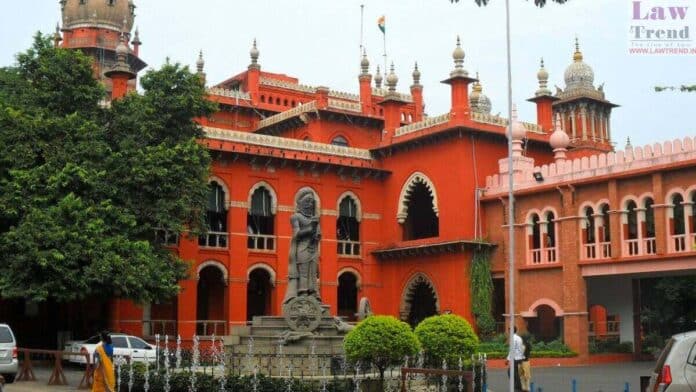The Madras high court on Friday ordered issuing notice to former AIADMK Minister B Valarmathi and her relatives on a criminal revision case initiated by it, following their discharge in a disproportionate wealth case by a trial court in 2012.
Invoking his powers under section 397 of Cr.P.C, Justice N Anand Venkatesh initiated on his own (suo motu) the criminal revision case and ordered notice to Valarmathi, her husband K V Balasubramanian and their sons B Muthamizhan and B Moovendran, besides the State government, returnable on October 12.
The case of the prosecution (DVAC) was that Valarmathi had amassed wealth in her name and in the names of her relatives to the tune of Rs 1.70 crore, disproportionate to her known sources of income during her tenure as Minister in the State Cabinet between 2001 and 2006.
Narrating the sequence of events and pointing out the flaws in the procedure followed by the prosecution and the trial court, the judge said having examined the order of discharge, this Court was of the prima facie view that the Special Court had traversed way beyond its jurisdiction in a discharge petition and has conducted a mini-trial to discharge the accused.
The orders of discharge, on the face of it reveal several palpable errors that were impossible for any trained legal mind to ignore, the judge added.
The judge said it was seen from the impugned orders of discharge that in paragraph 11, the Special Court notices that “there are various contradictions between the charge sheet and in the counter filed …”
That the counter and the charge sheet were filed by the very same officer ought to have alerted the Special Court that there was something amiss. This volte-face was a deliberate ploy by the DVAC to short-circuit the prosecution since Valarmathi was now a Minister in the State Cabinet, the judge added.
The judge said according to the Special Court, Valarmathi (A-1) had contended in her reply that land at Sholinganallur was purchased in the name of one Nachaiappan for which her husband was a power agent. It could not be taken as an asset.
The judge said that the Special Court took note of these submissions and observed that had the prosecution conducted further investigation and recorded the statement of the above three persons the prosecution could have come to a fair conclusion and ascertain the explanation given by A1.
If the Special Court felt that further investigation was necessary nothing prevented it from passing a direction to that effect. Instead of doing so, it very strangely and curiously proceeded to discharge the accused. In other words, the Special Court discharged them not because it found that the case against all the accused was groundless but on account of the fact that the investigation, in the opinion of the Special Court, was incomplete, the judge added.
By completely ignoring the fact that what was before it was only a discharge petition, the Special Court literally donned the role of a Chartered Accountant and enquired into the material adduced by the accused, compared it with the information provided by the DVAC in the charge sheet and their counter-affidavit, and then pronounced a verdict on the merits of each individual allegation raised by the accused largely relying upon the documents filed by them within the meaning of an anti-corruption act.
The Special Court has, at several places, concluded that the prosecution has not proved the charge against the accused overlooking the fact that what was before it was a petition for discharge and not a final hearing post trial, the judge added.
Also Read
The order of discharge, prima facie, appears to rest on grounds that were clearly perverse and erroneous causing grave miscarriage of justice.
This Court was aware that the accused persons were discharged on December, 2012 which was just about one and a half years after A1’s party (the AIADMK) came to power in the State in May 2011.
It was common knowledge that the AIADMK remained in power till May 2021, and A1 went on to become the Chairman of the Textbook Corporation in the second stint (2016-2021). The modus operandi of quickly obtaining discharge as soon as the accused and his/her party return to power was a well-known game-plan, the judge added.
The judge said in the present case from the facts, which were a matter of record, this Court was of the view that a prima facie case was made out for exercise of suo motu powers under Sections 397 and 401 Cr.PC and Article 227 of the Constitution of India against the order of the Special Court for Prevention of Corruption Act Cases at Chennai, dated December 24, 2012 discharging all the four accused.




